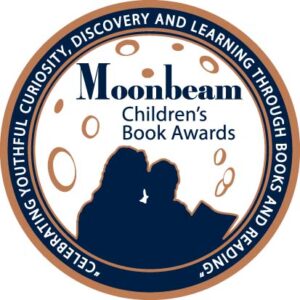I had hoped by now I’d be over my annoyance toward Tim Challies’ unfortunate post in which he calls St. Teresa of Avila a “false teacher.” Certainly it helped ease my frustration when my friend Ellen Painter Dollar wrote such a stellar response. But alas, the annoyance remains.
As troubled as I was over Challies’ brutal (and wrong) allegations about St. Teresa, something else has kept at me. The same thing, in fact, that gnaws any time any of the supposed Reformed crowd makes claims in the name of Reform-ed-ness that just don’t hold holy water. At least, not in the Reformed circles I run in (and I run in lots: I’ve been a member of a CRC church for 33+ years. I graduated from “Reformed-perspective” grade, middle and high schools and then Calvin College. I’m employed by my church and work for a RCA and and a CRC pastor).
So when Challies claims we cannot experience or know God outside of Scripture and expresses hostility toward not only St. Teresa but all mystics and mysticism, and when he does this in the name of Reformed theology, I gotta pipe up. I have to because I am Reformed–as dyed in the wool as I am washed in the Blood–and I am a mystic. Or, at least, mystically inclined.
So here it goes: while certainly St. Teresa got plenty wrong–we all do–she was no false teacher. St. Teresa’s personal experiences and sweet communion with Christ are enviable. Especially to a mystically-minded Christian like me. Reading her words will not put us on the path to hell, as the term “false teacher” implies. But Challies’ assertion that we cannot experience or know God outside of Scripture or in ways “not found in Scripture” might very well put us on that path. At least, it could’ve with me.
I would not be a Christian if I hadn’t felt God first, if I hadn’t been convinced at seven years old that God heard me, “the little one, cowering the middle,” as I write in Broke. Without hearing, seeing, tasting, seeing, feeling God through nature, without sensing God’s hands somehow reach through the universe into this created world, put his hands on my face, and draw me toward him, I don’t know that’d I have bothered getting to know God more through the Bible.
This is not false teaching or false learning. This is not narcissism or heresy. This is Reformed Doctrine. The Belgic Confession says we know God first
“…by the creation, preservation, and government
of the universe,
since that universe is before our eyes
like a beautiful book
in which all creatures,
great and small,
are as letters
to make us ponder
the invisible things of God:
God’s eternal power and divinity,
as the apostle Paul says in Romans 1:20.
All these things are enough to convict humans
and to leave them without excuse.”
We know God second, the Belgic Confession says, through the Bible. What we Reformed folks profess is exactly opposite of what the “Reformed” Challies claims.
Beyond that, there’s the granddaddy of Reform-ed-ness, Abraham Kuyper, who famously said: “There is not a square inch in the whole domain of our human existence over which Christ, who is Sovereign over all, does not cry, Mine!”
This idea that Christ claims every bit of this earth is central to Reformed worldview. It fuels our belief that our work (and play and creativity and sleep and … and…) can be worship, that there is no “sacred” and “secular” divide, and that God can be known–that he reveals himself–through every square inch of this earth. It’s why I have no problem hearing God “speak” through a passage in Mrs. Dalloway or Glittering Images or why I feel his presence wandering past the masters in the Art Institute of Chicago. It’s God’s. He uses it. All.
That Jesus claims every square inch of this earth is a reminder that his Spirit and his people are at work in this world, that his kingdom is come. And that we can know Jesus, experience God through it. In ways that may or may not be modeled in Scripture. I mean, I’ll check, but last I looked not one prophet managed to hit up the Art Institute. Does this mean God doesn’t speak there?
And then there is our oft-mocked T.U.L.I.P (which has been redone as F.A.I.T.H., and I just heard B.A.C.O.N). That we Reformed folks believe grace is irresistible (“I”) even in our total depravity (“T”) is nothing short of a mystical act. In fact, that moment we steeped-in-sin, broken people first feel the pull from God on high toward his all-wrapping, all-consuming grace and mercy and love is–or should be–ecstasy itself.
There’s no way around this. To be Reformed is to hold a high view of Scripture, yes, but also to understand that this world–every last square inch of it–is the Lord’s and that he’s at work in it, through us, through creation, through the created. And this means we encounter God, hear God, see God, smell God, taste God, feel God in the most dazzling, awesome, mystical ways.
Now that I’ve written this, I’m no longer annoyed at Challies. But I’m sad for him and all that he’s missing. I’m sad for anyone who misses out on experiencing God through his Spirit, through General Revelation, who doesn’t feel a sweet, personal communion with Jesus. I pray that God opens those hearts and minds and eyes and ears and taste buds and nostrils and that God sloughs callouses from feelers so that all those who’ve only gotten to know God through the Bible may answer his call to get to know him in the whispers of our heart and in the broader world as well.
Note: In many ways, my new book Broke was my mystical coming out. In a subsequent post, I’ll share an ecstatic excerpt.










Caryn, when I read the post over at Tim Challies’ place I started wondering what he’d have thought of John of Patmos had he been there when the Revelation was first distributed to John’s friends. John is also the one who told us to test the spirits. He didn’t say reject them out of hand, and I think that’s important to remember as we wrestle with our encounters with God.
Mysticism may seem odd to some of us, but so does a lot of Christianity that is unfamiliar to me or out of my personal experience. As a fellow Reformed believer, I appreciate that you took the time to write out your thoughts on all this so carefully and cogently.
Cheers,
Tim
P.S. Speaking of wrestling with our encounters with god, did you see today’s post over at Aimee Byrd’s place ( http://www.housewifetheologian.com/limping-warriors/ )? She discusses a Bonhoeffer bio and includes an brief excerpt from a sermon where he mentioned Jacob’s wrestling with God and how we all can end up as “limping warriors” in serving Christ. Bonhoeffer, too, strikes me as someone who would not reject mysticism out of hand as false teaching.
This is beautiful – really, the kind of stuff that makes me lean even hard into my Reformed tendencies. Thank you.
Sometimes the Internet makes me feel bad about being Reformed, so I love love love this. (The fact that I went to a college named after Abraham Kuyper doesn’t hurt either. 😉 I’m all about every square inch.)
Thank you for this Caryn. Having also graduated from grade, middle, and high Reformed-perspective schools, I deeply know this perspective. And then being so influenced by the mystics, you put these two together in such a meaningful way. I’m grateful.
Thankyou Caryn, for the clarification.
I am not reformed and have noticed this dichotomy between my two female cousin-in-laws who went to Calvin and the internet wars with the Challis and co. and their fans. They seem miles apart on everything, yet both claim to be reformed.